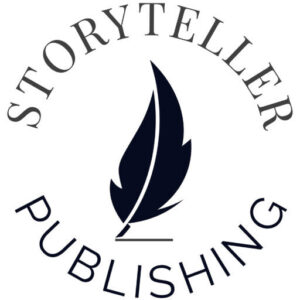Sales
Book sales are a critical aspect for a publisher’s success and involve various stages, tracking methods, and influencing factors. Here’s a breakdown:
Tracking Book Sales:
Publishers track book sales through several channels:
- Nielsen BookScan: This industry tool records point-of-sale data for print books by tracking ISBNs at bookstores and other retail outlets. While comprehensive, it might not capture all sales channels.
- Distributor and Retailer Reports: Publishers receive regular sales reports from their distributors (like Ingram) and major retailers (like Amazon, Barnes & Noble). These reports provide detailed information on the number of books sold across different formats (print, ebook, audiobook) and territories.
- Internal Systems: Publishers have their own internal systems for managing sales data, including pre-orders, direct sales, and royalties owed to authors.
- Digital Sales Platforms: For ebooks and audiobooks, publishers track sales through platforms like Amazon Kindle Direct Publishing, Kobo Writing Life, and others.
Factors Influencing Book Sales:
Several elements can significantly impact how well a book sells for a publisher:
- The Book Itself:
- Genre: Certain genres have larger and more active readerships.
- Title and Cover: A compelling title and an attractive, genre-appropriate cover are crucial for catching a reader’s eye.
- Book Description/Blurb: A well-written description can persuade potential readers to buy the book.
- Quality of Writing and Editing: A professionally written and edited book leads to better reader satisfaction and word-of-mouth.
- Originality and Concept: Unique and engaging ideas can help a book stand out.
- Author Factors:
- Author Platform: Authors with an existing fanbase or strong online presence often drive more sales.
- Author Reputation: Previously successful authors tend to have an advantage.
- Author Involvement in Marketing: An author’s willingness to promote their book can significantly impact sales.
- Author Platform: Authors with an existing fanbase or strong online presence often drive more sales.
- Publisher’s Efforts:
- Marketing and Publicity: Effective marketing campaigns, media appearances, and reviews can generate significant buzz and sales.
- Distribution: Wide availability across various bookstores and online platforms is essential.
- Pricing Strategy: The price point needs to be competitive and appropriate for the target audience and format.
- Relationships with Retailers: Strong relationships can lead to better placement and promotion in bookstores.
- Marketing and Publicity: Effective marketing campaigns, media appearances, and reviews can generate significant buzz and sales.
- External Factors:
- Market Trends: The popularity of certain genres can fluctuate.
- Seasonality: Book sales can be influenced by holidays and seasonal reading habits.
- Economic Conditions: Consumer spending on leisure activities like books can be affected by the economy.
- Competition: The sheer number of books published each year creates a competitive marketplace.
How Publishers Aim to Increase Book Sales:
Publishers employ various strategies to maximize book sales:
- Effective Marketing and Publicity: This includes targeted advertising, social media campaigns, securing reviews, author interviews, and promotional events.
- Strong Relationships with Booksellers and Retailers: Collaborating with bookstores for in-store promotions, displays, and staff recommendations.
- Optimizing Online Presence: Ensuring books are easily discoverable on online retailers with compelling metadata (keywords, descriptions).
- Leveraging the Author’s Platform: Working with authors to engage their audience and promote the book.
- Exploring Different Formats: Publishing in print, ebook, and audiobook formats to cater to various reader preferences.
- International Sales: Selling translation rights and distributing books in international markets.
- Backlist Promotion: Keeping older titles relevant and visible to readers.
- Audience Segmentation and Targeted Marketing: Identifying specific reader groups and tailoring marketing efforts to their interests.
- Developing Author Brands: Building long-term relationships with authors and nurturing their careers.
Are you an aspiring author?
Regardless of your genre or fiction/non-fiction affiliation we are here to make your words be heard!
